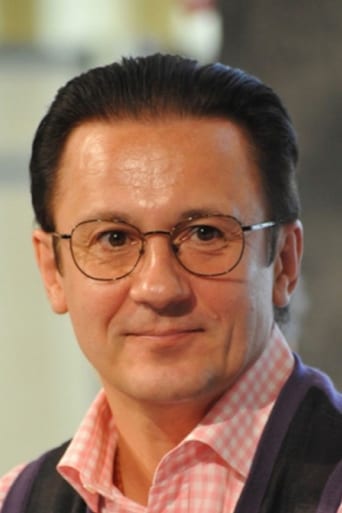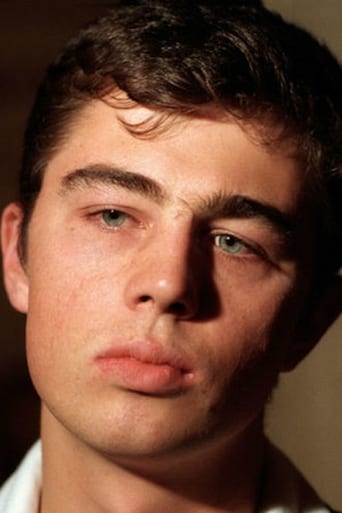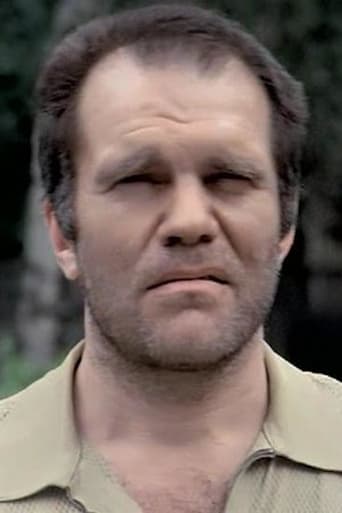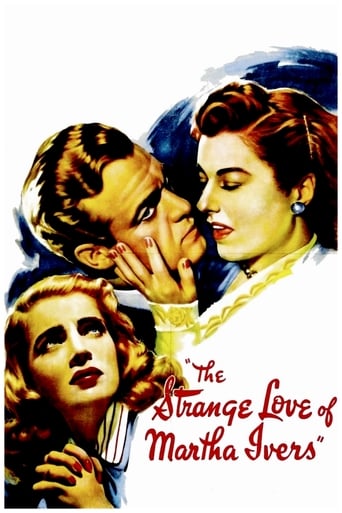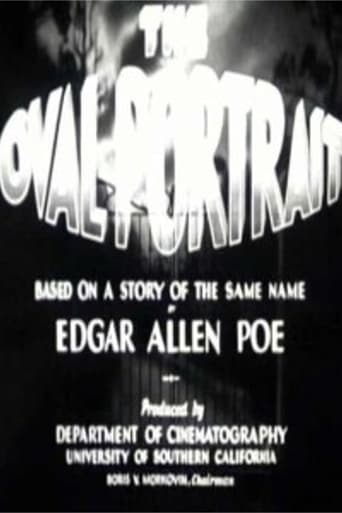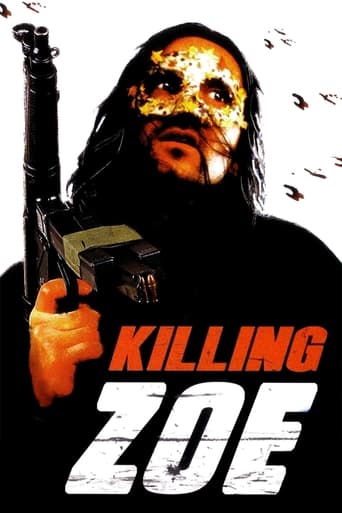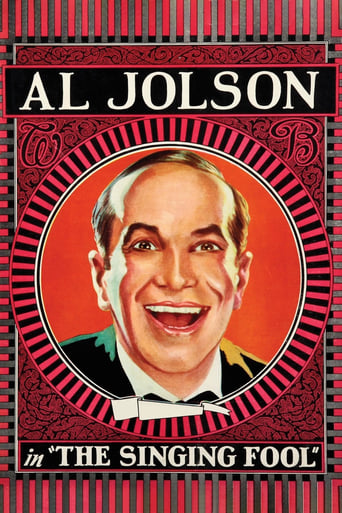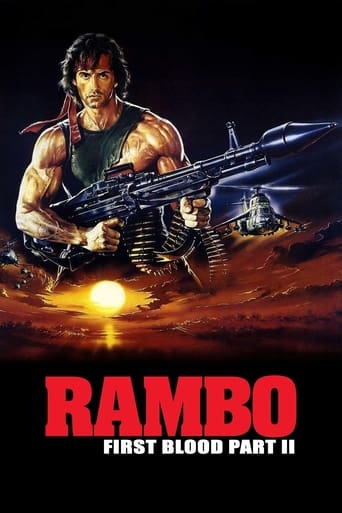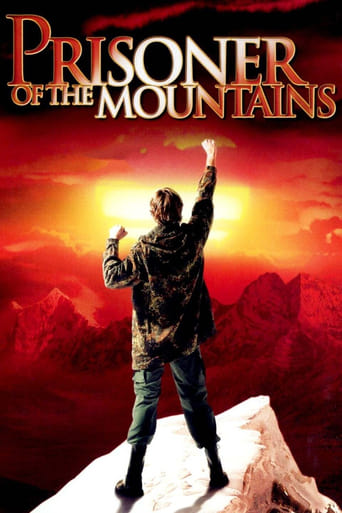
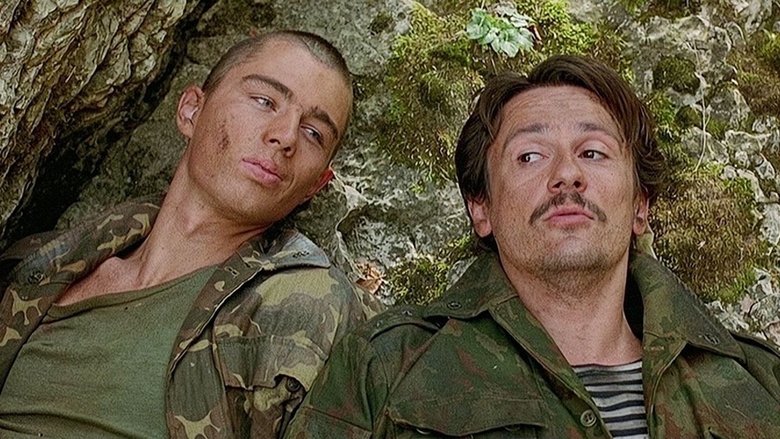
Prisoner of the Mountains (1996)
Two Russian soldiers, one battle-seasoned and the other barely into his boots and uniform, are taken prisoner by an anxious Islamic father from a remote village hoping to trade them for his captured son.
Watch Trailer
Cast
Similar titles
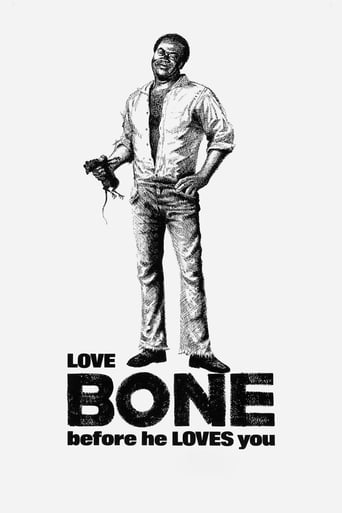

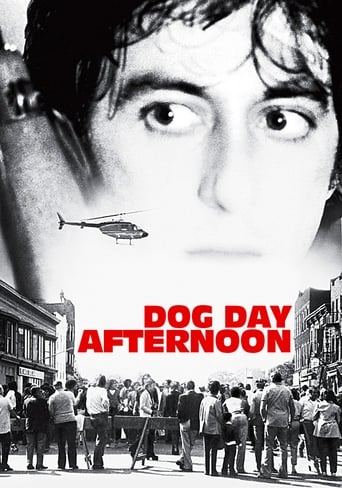
Reviews
You won't be disappointed!
Excellent, Without a doubt!!
It's easily one of the freshest, sharpest and most enjoyable films of this year.
The film never slows down or bores, plunging from one harrowing sequence to the next.
Contains SPOILERSIn this film, Bodrov goes beyond the anti-war dialog by portraying those who fight the war (at least on the Russian side) as the root cause of the problem. Although it contains many of the same elements as anti-war films produced in the United States, the dichotomy between the two prisoners, Sasha and Vanya, is unique.Introduced to the viewer in a scene in which their unit comes under fire, their reactions to the ambush establish their character differences. Sacha stands in the open, shooting from the hip at anything that moves with a crazed look on his face (anyone who has seen Kubrick's "Full Metal Jacket" will be reminded of Animal Mother). Vanya, on the other hand, hides behind an APC unwilling to shoot back. Sacha's soldier mentality is fully born out when he describes in detail how he will come back to the village and kill his captors. This message is presented to make him sound evil and bloodthirsty, and it also reminds us of a "Full Metal Jacket" character, the helicopter gunman who, when asked how he can shoot women and children responds, 'it's easy, you just don't lead them as much.' On the other hand, Vanya's affection towards his captors is glorified. He forms a bond with a young Chechen girl, fixes clocks for the villagers, and tries to understand their culture. The end is predictably self-serving; one guess as to who lives and who dies. That having been said, this bastardized version of Tolstoy's "A Prisoner in the Caucasus" is worth seeing.
The characterization in Prisoner of the Mountains conveys an overall message against war. While the characters represent distinct attitudes that form this anti-war message, they are more than simple vehicles; they stand out as realistic human beings as well, which makes the message extremely powerful. First, there are characters who are used to war, and perpetuate its continuation. Sasha and Abdul-Murat represent similar somewhat values yet they are on opposing sides. This shows that there must be at least two sides to fight and continue a war; these two sides are often similar, however. Both characters are experienced on the battlefield, and seem initially content with the continuation of the war. Yet their motivations for fighting are very different. Sasha simply likes the guns and the fighting, while Abdul's struggle seems more political, and with his son's capture, it is certainly personal as well. These men are characterized as strong in the film, and unwilling to see the other's perspective. asThe reasons for fighting might be different, yet all of these men are stubborn and hardened in their opinions. Yet at times it seems that even these seasoned veterans are tired of the war. Sasha expresses this feeling occasionally throughout. Abdul similarly does so when he lets Vanya go at the end, as if he, too is growing tired of the conflict. This action could symbolize a hope for eventual peace.Dina and Vanya, in contrast, are relatively innocent about warfare, and do not have as strongly formed opinions about the fighting. Dina is pleasant to the soldiers, bringing them food and water; she even forms a friendship with Vanya. She is not interested in furthering the war, yet she is not interested in stopping it either; her role is the traditional woman at home, as a provider who will soon marry. Dina's father is very domineering over her, therefore, she is beginning to form some of his opinions, as shown by the scene when she tells Vanya that he must be killed. Yet the fact that she frees Vanya shows some hope in her character, and hope for the future. She begins to see Vanya as another person rather than some Russian slave, and therefore feels obliged to help him, despite her father's ideology and the war.Vanya is innocent because he lacks war experience. He never shoots anyone in battle, and the one time he obtains a gun he manages to misfire. He claims that he wants to be a good fighter, yet Sasha always mocks him when he does. Vanya does not seem truly satisfied with where he is, and his inexperience is especially evident in contrast to Sasha. By the end, Vanya has befriended the only hope for a new future, Dina. By granting his freedom, Dina provides Vanya with the hope of survival. Although enemies, they do not have to destroy one another. Indeed, Vanya and Sasha even make friends with Hasin. Vanya discovers that the "enemy" are only other people, who laugh and cry, who celebrate marriage and death just as his people do. Since he survived, Vanya now has the chance to bring his new understanding to others. Yet this understanding is still vague at best, since Vanya can not properly remember the faces of the people he met. The film therefore warns that this type of message can fade over time, and it is important that something is done about it before it is too late.
Possible Spoilers:The two main characters of this film are two Russian soldiers, Ivan and Sasha, who are captured by a group of Chechens. Ivan is the younger, and less experienced of the two men, while Sasha has been involved in war before. As the film progresses, the relationship between Ivan and Sasha develops into a father-son relationship. This comes about because both of these characters are missing the role filled by the other character. Ivan reveals that he has no father, although the audience does not learn what happens to him. Sasha also admits later that he has a son, and asks Ivan to send him money if something should happen to Sasha. This relationship manifests itself in various places in the movie, most often with Sasha looking after or attempting to teach Ivan something. It first appears when Ivan and Sasha are first captured, and we learn that Sasha is more experienced of the two soldiers, and the potential for a fatherly relationship becomes apparent.One place where Sasha decides to teach Ivan something is when the two begin to wrestle. Sasha's lesson for Ivan is that he does not have to be the toughest or hit the hardest, but he simply has to be the most intimidating, in this case by making noise. He repeats this lesson just before Ivan is supposed to fight the Chechen's nephew, and the advice saves Ivan from the fight. Sasha also protects Ivan after their attempted escape failed. He does this by admitting that he was the one who killed the shepherd. In doing so he sacrifices himself and saves Ivan.
In this film, I can find almost everything what I like in a movie. It presents the life of a small community, their thoughts, their feelings and their habits. It has a nice atmosphere, beautiful sights, good actors, and a strong story. What else do you want? Another reason to love Russian movies.
